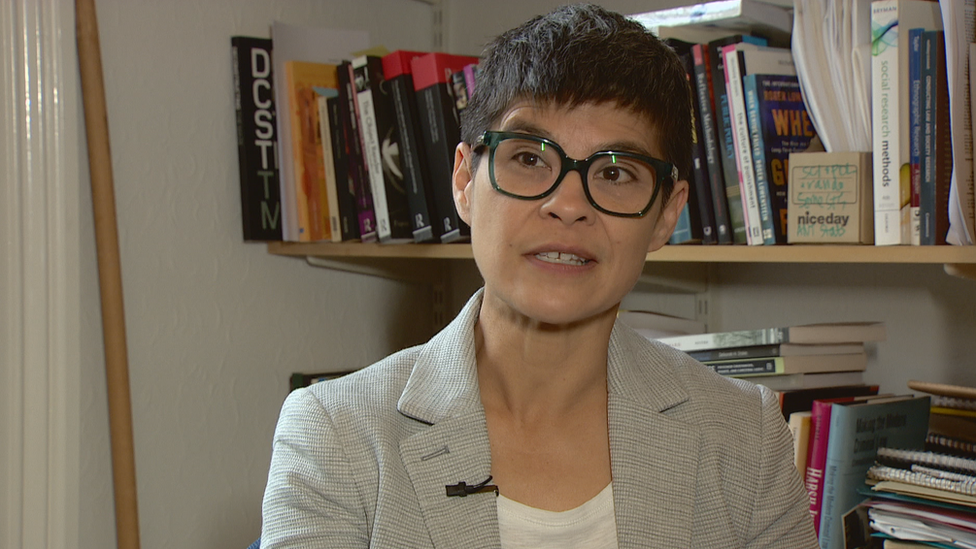Restrictions on short jail terms has limited re-offending impact
- Published

Restrictions on handing out short prison sentences in Scotland have had little impact on imprisonment and re-offending rates, according to research.
The findings may affect sentencing policy in England and Wales as the UK government considers similar plans, a justice consultancy has found.
In Scotland, there is a presumption against courts passing jail sentences of fewer than three months.
The Scottish government is set to extend this to 12 months.
Official figures for 2018 showed those sentenced to short jail terms in Scotland were reconvicted almost twice as often in 12 months than those given community payback orders.
Crest Advisory - the consultants which carried out the research - said in its report that the presumption against short custodial sentences had coincided with a number of positive trends in Scotland since its introduction in February 2011.
These trends included:
a reduction in reconviction rates from 29.6% to 27.0% between the 2011/12 and 2015/16
a reduction in the number and proportion of short custodial sentences awarded, down 31% within the period of 2011/12-2017/18
a reduction in the prison population, from an average daily prison population of 8,179 in 2011-12 to 7,464 in 2017/18
But, it added, these trends were "largely consistent" with the previous years - before the presumption against short sentences was introduced.
With the exception of the prison population - which had previously been increasing - the trends above were already going in the same direction before 2011.
It concluded that the reductions had "simply continued at similar rates since".
The consultants added that it was unclear how much of the continuation of the trends could be attributed to the changes in sentencing guidelines, and how much was a result of other reforms to the criminal justice system.

Dr Armstrong said community sentences are rigorous
Commenting on the report, Dr Sarah Armstrong, of Glasgow University's Scottish Centre for Crime and Justice Research, said the use of community based sentences as an alternative to prison had already "significantly expanded".
Dr Armstrong said: "Community sentences being issued are issued with more conditions, more time, more review, than they ever have been before.
She added: "The government's move is really quite admirably bold in a way in that it's trying to make official a recognition that short prison services are not very effective [in that] they tend to pull people out of circulation to do not very much for anybody and I think that's an important acknowledgment."
There are also "political and a moral" decisions to be made, Dr Armstrong added, about why "extremely expensive, extremely isolating, community undermining institutions" like prisons are not appropriate "for the kind of offences that result in such short sentences".
'Strong and smart justice'
A spokeswoman for the Scottish government said: "We will shortly extend the presumption against short sentences in order to further promote more effective use of... non-custodial sentences.
"Our approach has been cited by the UK government as an example to follow for England and Wales.
"Prison will always be the right place for the most serious offenders but for many, jail is not effective.
"A combination of approaches such as a presumption against short sentences, ensuring remand is only used when necessary and appropriate, more effective use of community sentences and an expansion of electronic monitoring all play a part in delivering a strong and smart justice system in Scotland."
- Published4 September 2018

- Published18 February 2019
